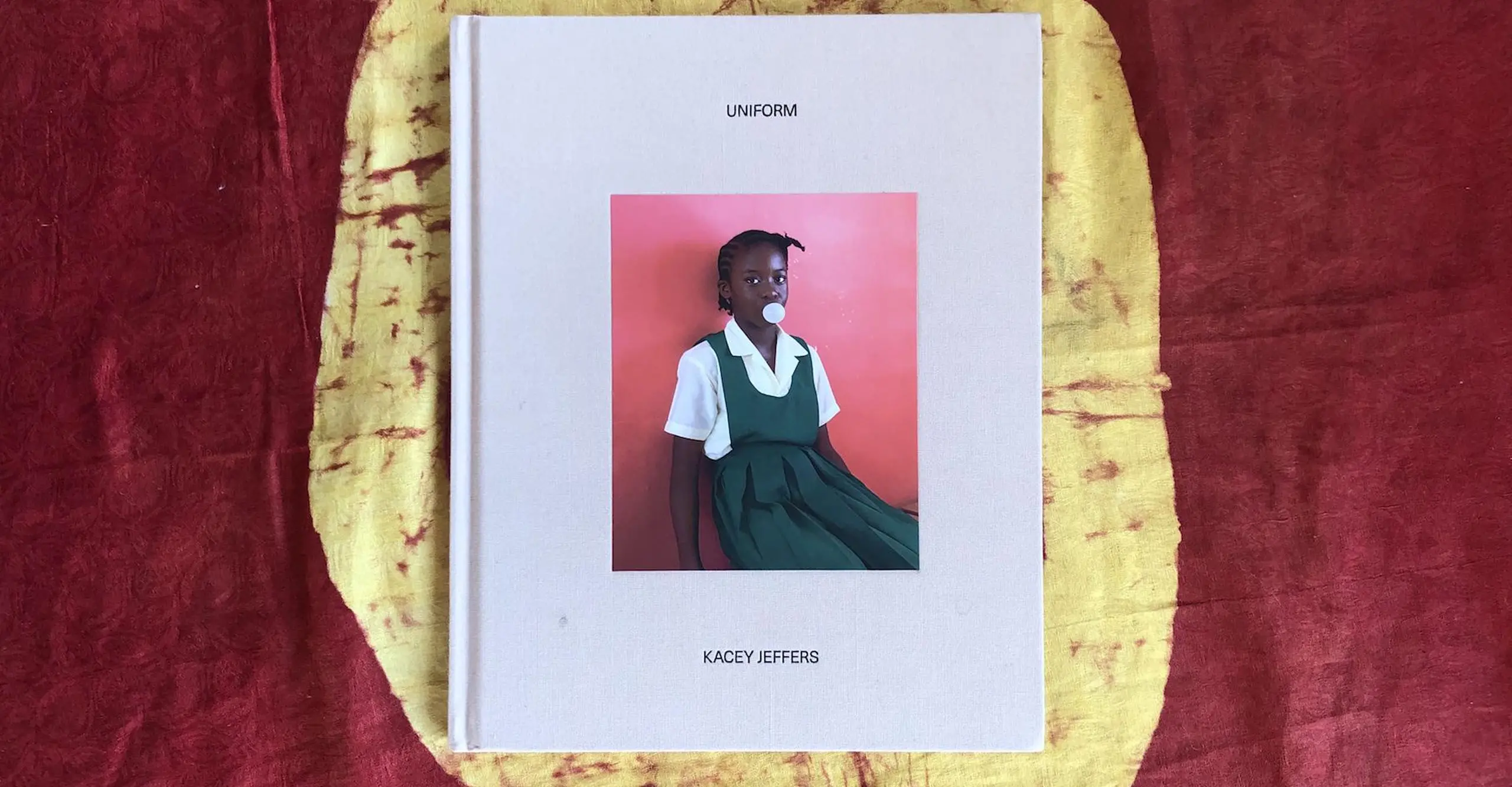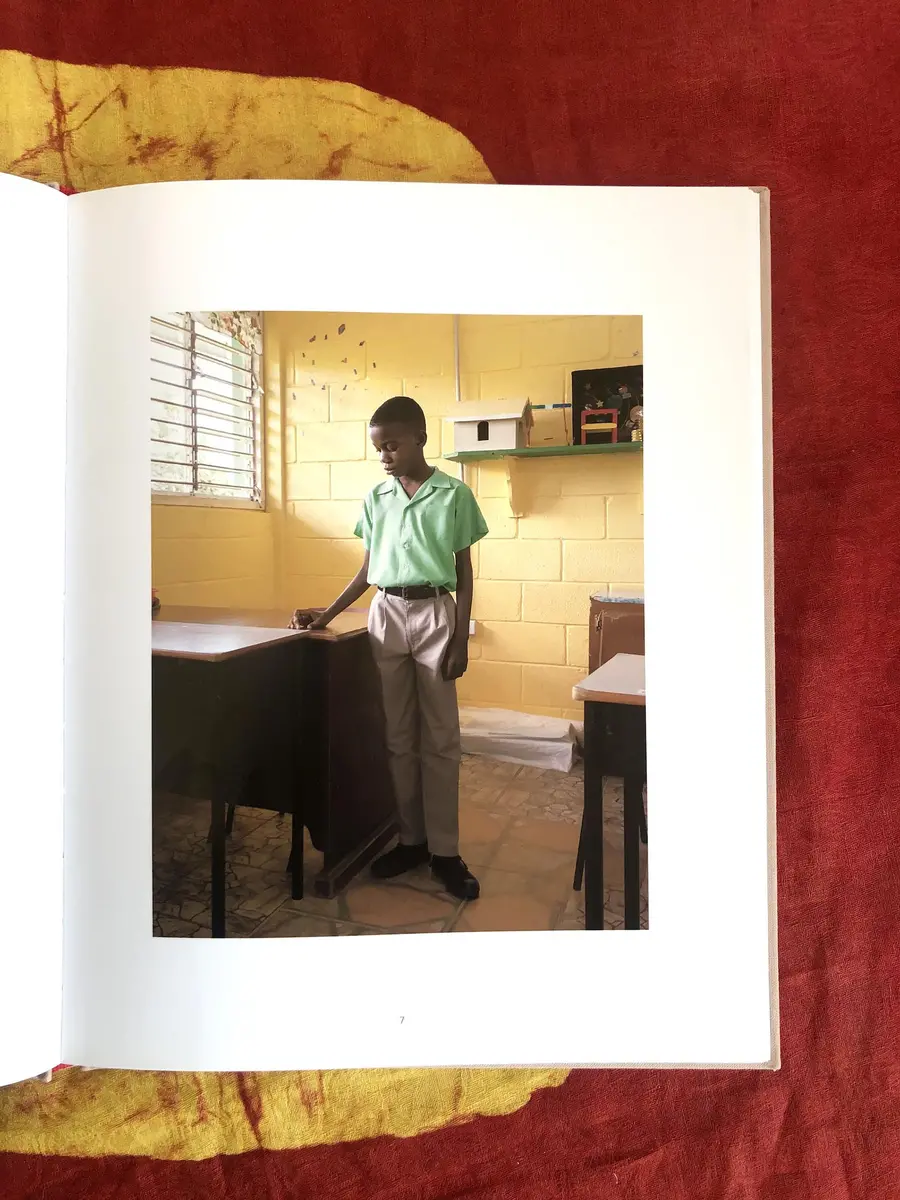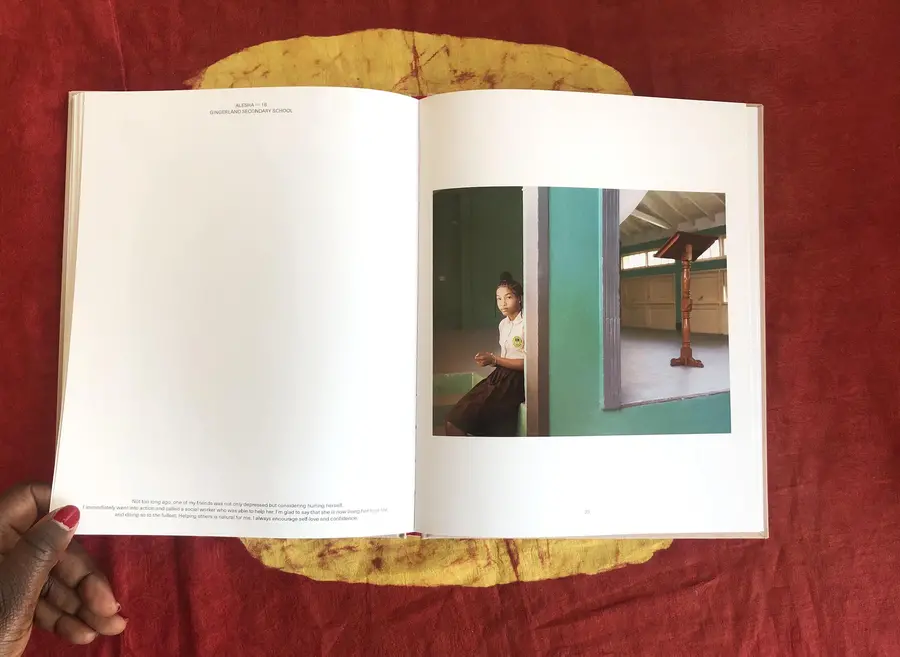Immaculata Abba reviews the photobook UNIFORM by Kacey Jeffers.
All around the world, but in some societies more than others, the voices of children and young people are not taken seriously enough. They are seen as fragile helpless people without worries who “will not understand until you're older.” As if there is ever only one single understanding to be made of any subject and as if our understanding of the world does not have enough meaning. Often, older people disregard the fact that the problems that affect them affect younger people around them as well, however differently the impact may look.
In Kacey Jeffers' book UNIFORM, young people aged between 10 to 18 years old take up space as full humans with responsibility, agency, voices and meaningful ideas about themselves and their society. In the book's introduction, Jeffers tells us that UNIFORM started as an idea to catalogue the different school uniforms of Nevis, his home country. “Photograph what you know best” is one of my favourite pieces of industry advice and this book makes yet another beautiful case for it.
Jeffers himself, now in his thirties, lived through the uniformed Nevisian primary and secondary school experience. Like the students profiled in the book, he knows what it felt like to do dodge chewing gum, ink and schoolyard scuffles so that he could "bring this uniform back home just how you left with it." Though uniforms differ by school, undergirding their pleats and trouser creases is the weighty principle of discipline. And yet underneath this discipline are the different vibrant personalities, dreams and struggles of students that Jeffers wants us to see, hear and understand. Not only through his view of them but also through their own words, which he includes on a blank page accompanying each photograph.
Take the photograph of Alesha, age 16, at Gingerland Secondary School (Jeffers' alma mater), for instance. It is a powerful image divided into two frames by a wall. One frame shows a podium on the same platform Jeffers stood on to give the valedictorian speech at his graduation years ago. The other frame shows Alesha sitting on the platform and adjusting her bracelet as she looks calmly at the camera like she might be looking at herself. In the gaze she holds with the photographer, she is not trying to entertain, prove or disprove either ability or confidence. Her composure says, “I am minding my business and I'm happy to let you in on it if you care to pay attention.” Her quote on the opposite page tells us of some of her business: "Not too long ago, one of my friends was not only depressed but considering hurting herself. I immediately went into action and called a social worker who was able to help her. I am glad to say that she is now living her best life."
After experiencing the book in all its colour and range of emotions and experiences, I saw that making this book must have been a meaningful experience for the photographer himself. I had to ask Jeffers directly if making the book changed him or change his mind about youth. In his response to my email, he wrote: "The conversations [I had with the students] really put into perspective a lot of feelings that I, at the respective age, might not have had space or emotional language to define or understand. It also made me realize that though times change, there are still core issues that youths grapple with--be it belonging, lack of opportunities, self-acceptance, identity, etc. I think that grounds the stories in universality. Nevis is such a small place. But the fact that this book can be in every corner of the world reaffirmed for me that I have to believe in my vision as an artist even more and that I can tell stories true to my experiences fearlessly even if I have to create a space for them… for us.”
I recommend this book because it reminds us of all of the agency and humanity in us that lies beyond the idealisation of youth and the discipline of uniforms.
- Immaculata Abba


